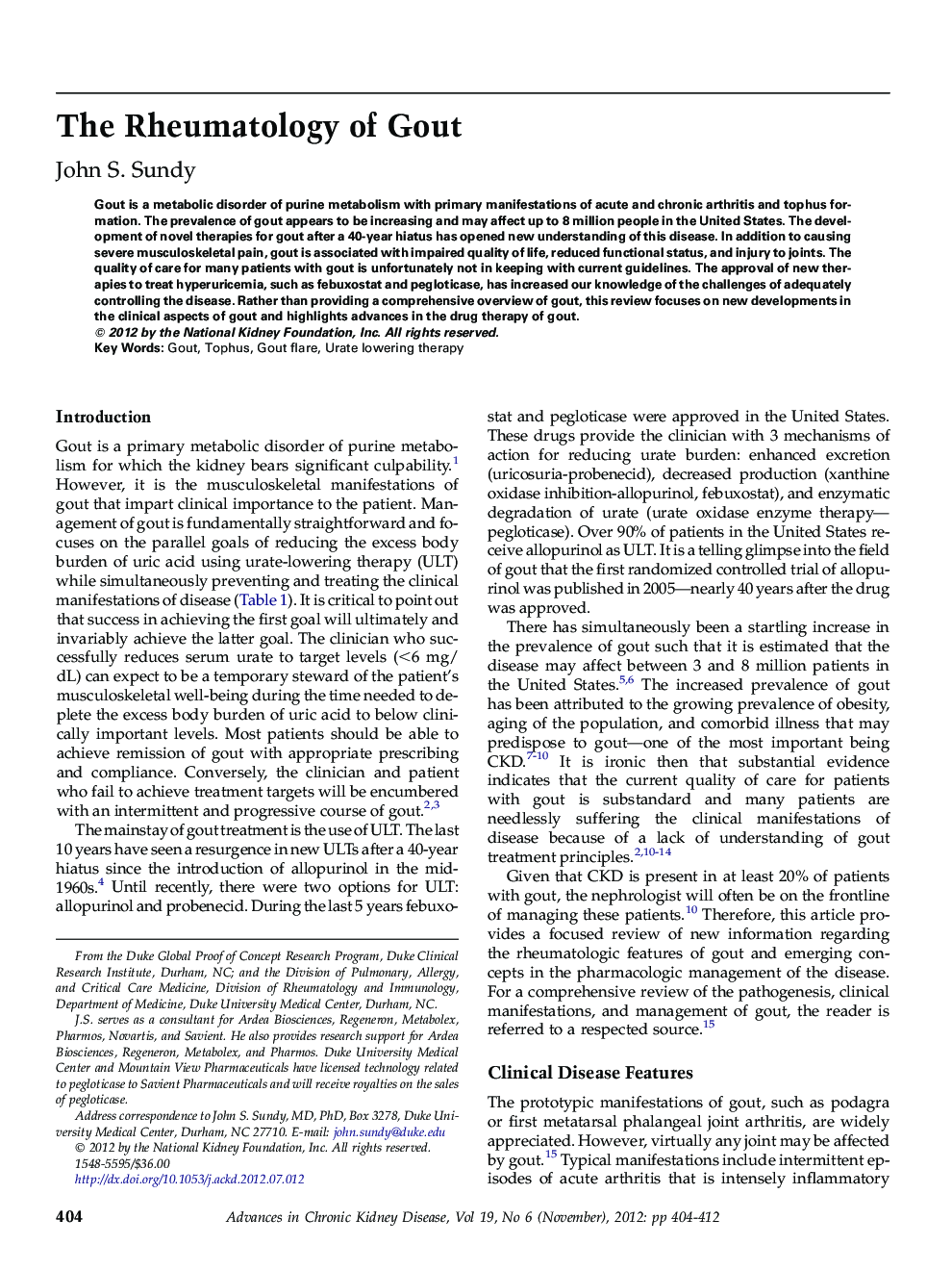| Article ID | Journal | Published Year | Pages | File Type |
|---|---|---|---|---|
| 3846690 | Advances in Chronic Kidney Disease | 2012 | 9 Pages |
Abstract
Gout is a metabolic disorder of purine metabolism with primary manifestations of acute and chronic arthritis and tophus formation. The prevalence of gout appears to be increasing and may affect up to 8 million people in the United States. The development of novel therapies for gout after a 40-year hiatus has opened new understanding of this disease. In addition to causing severe musculoskeletal pain, gout is associated with impaired quality of life, reduced functional status, and injury to joints. The quality of care for many patients with gout is unfortunately not in keeping with current guidelines. The approval of new therapies to treat hyperuricemia, such as febuxostat and pegloticase, has increased our knowledge of the challenges of adequately controlling the disease. Rather than providing a comprehensive overview of gout, this review focuses on new developments in the clinical aspects of gout and highlights advances in the drug therapy of gout.
Related Topics
Health Sciences
Medicine and Dentistry
Nephrology
Authors
John S. Sundy,
